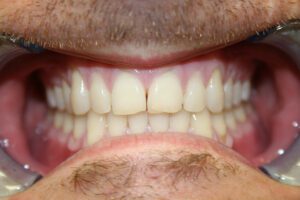
Some people think taking fluoride dietary supplements available in the form of tablets and lozenges might help to prevent cavities and other oral conditions. However, one has to keep in mind that these supplements, unlike other similar products, are available only by a doctor’s prescription and may not be safe for everyone. Moreover, they should be used according to the suggested dosage, otherwise a condition known as fluorosis may occur which is characterized by yellow patches on permanent teeth due to too much fluoride intake.
Fluorosis can be mild to moderate and even severe with black patches on teeth. Many people do not know the side effects of too much fluoride ingestion, but dentists are now spreading awareness to decrease the risks of this apparently harmless treatment to prevent tooth decay.
American Dental Association or ADA prescribes fluoride supplements for only those children who live in non-fluoridated areas. For these children, it is recommended that they use fluoride supplements until they reach the age of 16. If taken in large quantities, these supplements will eventually cause fluorosis. It has been found that fluoride tablets cause dental fluorosis in 64% of the children and these tablets are not effective at all. There is no sound evidence available to support the theory that fluoride tablets prevent tooth decay in children.
It has also been observed that the FDA has not approved fluoride supplements available on the market. Moreover, if taken in larger amounts these tablets may even cause death. Instead of prescribing fluoride supplements to children, it is more appropriate to spread awareness about the benefits of breast milk. If infants are given adequate milk in their early months, chances of tooth decay decrease automatically and there is no need for additional dietary supplements or even fluoridated water. Consuming fluoride supplements exposes children and adults to many adverse health effects including kidney damage and bone fracture.
At the same time, fluoride has been found to be useful for the teeth because it slows down the rate at which bacteria in the mouth produce acids. In addition to this, fluoride also makes a tooth more resistant to the formation of cavities. However, dentists and common people are learning more and more about the dangers of fluoride and the most prevalent of which is fluorosis. It is advisable to use fluoride only as a topical treatment, by using gels, toothpastes, or mouth rinses. Toothpastes only contain about 0.1% fluoride in the form of a compound.
Dentists recommend fluoride therapy for a number of reasons, including reduction of tooth sensitivity, protection of root surface, prevention of tooth decay, and treatment of white spots. Excess consumption of fluoride through fluoridated water or dietary supplements may cause dental as well as skeletal fluorosis, which is less common. Normal fluoride therapy, which does not extend over long durations of time does not cause many adverse side effects and is not dangerous. However, the dangers of such a therapy merely for the prevention of tooth decay in children, far outweigh its benefits and therefore fluoride therapy is not a recommended treatment.

